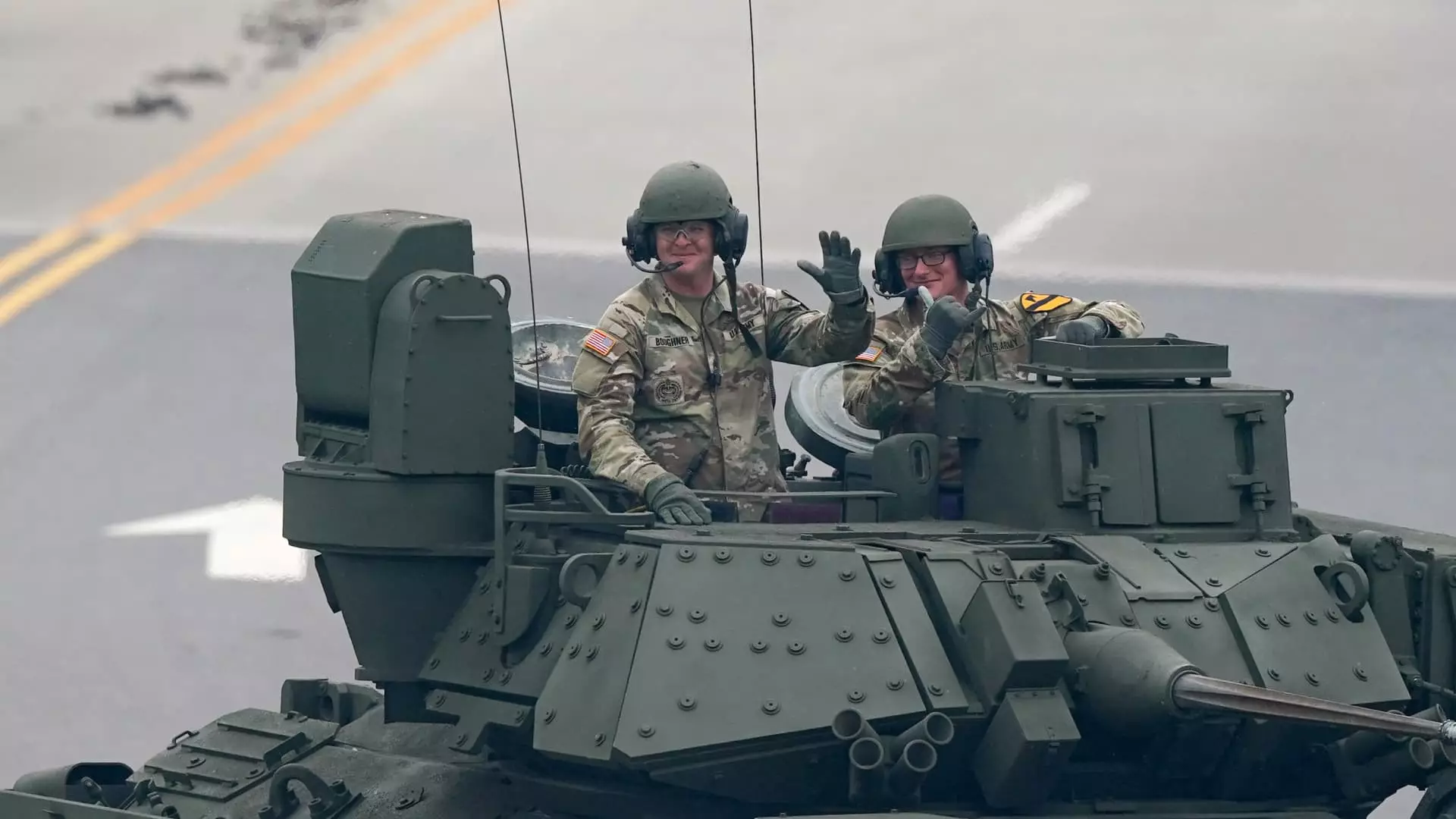The NATO summit currently taking place in The Hague serves as a pivotal moment for Europe’s defense strategy, as member states convene to discuss an alarming consensus: increasing defense spending to 5% of their gross domestic product (GDP). While the sentiment behind this decision appears to be one of bolstering national security, it raises critical questions about priorities and the long-term implications of such financial commitments. With the notable exception of Spain, the other 31 nations seem to accept that a radical escalation in military expenditures is the best answer to growing geopolitical tensions and security threats. But one must ponder: is pouring massive amounts of resources into military capabilities truly the most effective approach to ensure safety and stability, or is it merely a reactionary measure driven by fear?
Market Reactions and the Profit Motive
The immediate response from the European financial markets has been somewhat enthusiastic, with stocks in the defense sector climbing significantly. Companies like Babcock International and Avio have observed generous gains, indicating a bullish sentiment from investors who view defense budgets as a potential goldmine. The Stoxx Aerospace and Defense index reflecting a near 50% increase year-to-date suggests that traders uncritically embrace military expansion as a secure investment path. Yet this surge fosters a troubling narrative: profit from conflict may inadvertently stoke the very fires we seek to extinguish. When profit becomes the primary driver behind defense spending, one must question the intentions of those who stand to gain and consider the ethical implications of such a financial strategy.
Geopolitical Landscape: Heightening Tensions
Meanwhile, the backdrop of a fragile ceasefire between Iran and Israel further complicates the landscape. As the world holds its breath, waiting for this tenuous truce to hold, the sounds of weapons and military might are reverberating louder than ever. U.S. policymakers, including Federal Reserve Chair Jerome Powell, are focusing on economic conditions shaped by international strife, attempting to counteract inflation while navigating the tumultuous waters of tariff implications. Yet what is often overlooked is the underlying belief propagated by military escalation: that might makes right. The hegemonic assumptions about national security lead to an arms race wherein countries feel obligated to keep pace with their neighbors, resulting in spiraling defense budgets at the expense of more pressing domestic needs.
Domestic Priorities vs. Defense Expenditure
As European nations commit themselves to an astronomical defense budget, critical domestic concerns are left to languish. Social programs, healthcare, education, and infrastructure—areas that arguably require immediate focus—are at risk of underfunding as attention shifts toward military readiness. While security is a valid priority, it seems overly simplistic to believe that merely increasing our arsenal will address complex security issues effectively. Dialogue, cooperation, and investment in socio-economic stability often foster a far more durable peace than a cache of arms. When push comes to shove, can we say that a defensive posture driven purely by weapons spending facilitates security when it may well foster discontent and resentment, both domestically and abroad?
Economic Consequences of Militarization
The financial ramifications of such an uptick in defense spending can also be deeply destabilizing. An economy diverted towards military spending often neglects critical areas like innovation and societal welfare. In times of hardship, where citizens grapple with inflationary pressures and declining social services, directing funds towards defense may seem like misallocation to those who feel the brunt of those budgetary cuts. The question is not merely whether a nation can afford to spend 5% of its GDP on defense, but whether it can afford not to invest in its people and their futures. Deteriorating public infrastructure and halting scientific research due to lack of funding could eventually lead to a society that is not only less secure but also wholly unprepared to adapt to future challenges.
A Call for Responsible Defense Spending
As defense spending continues to surge in response to perceived threats, a reevaluation of priorities is entirely warranted. The values of liberalism emphasize the importance of balancing security with social obligation. Strategically placing funds in areas that uplift communities and foster international cooperation should not be viewed as naïveté but rather as a pragmatic approach to forging a secure future. The potential for defending against threats exists, but so does the strength found in collaboration and social investment. There lies a significant difference between preparing for battle and fostering peace; understanding that difference may be the key to not only our defense strategy but the very fabric of our democracies.



Leave a Reply